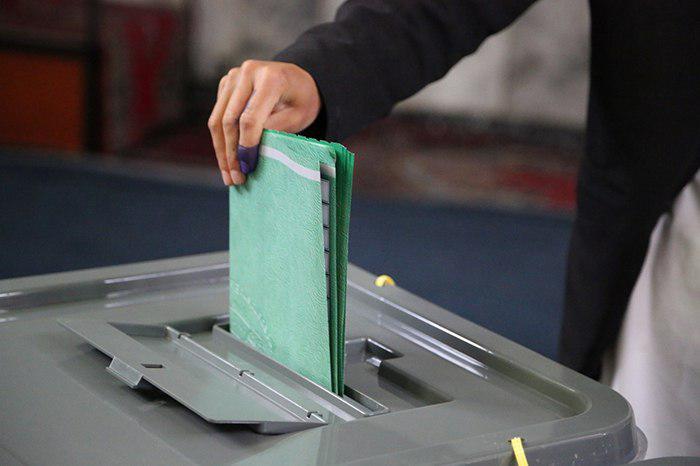As Afghanistan is closing in to 2019 presidential elections set for September 28, a number of local officials and residents of Ghazni province complain about what they see as deliberate closing of polling centers, mostly in Hazara populated areas of Qarabagh district of the province.
Nasir Ahmad Faqiri, Chief of Ghazni Provincial Council, claims that 17 polling centers have deliberately been closed in Hazara populated areas of the district. The centers which are located in secure districts were closed during the voters’ registration process, he adds.
Talking to Kabul Now on August 20, local officials said that based on fake security report, the provincial office of Independent Election Commission (IEC) closed as many as 17 polling centers in Hazara populated areas of the district. Following the report, Mohammad Amin Mobaligh, the deputy governor of Ghazni promised that the local government would rectify the report and take necessary measure to address the issue but in vain.
With three months gone, the promise made by local officials has not been fulfilled, and no one has registered in secure Hazaras populated areas of the district to vote in the upcoming presidential election.
Out of 33 centers already approved by the IEC for Qarabagh district, there are only 16 polling centers operating in the district. 16 polling centers are currently operating in the predominantly Pashtun populated and insecure villages, including Nawrozkhel village, where as some residents claim, the Taliban administrative center for Qarabagh is also operating.
Situated in the western part of the district, the polling centers have been closed based on a fake security report in 17 secure villages mostly populated by Hazaras.
Mr. Faqiri, however, claims local security officials forge fake report to disfranchise the Hazara community in Qarabagh district. He says the IEC has taken a partial position—acting on demands of local officials. “These polling centers are still closed,” Faqiri noted.
Mohammad Arif Noori, spokesperson for Ghazni governor, rejected accusations made by Faqiri. He claimed that the IEC closed these polling centers based on ‘old security reports.’ He added they have repeatedly asked the IEC to change its decision over the secure and insecure polling centers in Qarabagh but in vain.
The IEC office in Ghazni, however, stated that it has taken actions in line with local security reports while saying they have not received any updated security report from local officials.
This comes while three months ago the IEC announced that they would extend voter registration process in the 17 polling centers if security institutions were ready to ensure security of the areas, an offer that has yet to be put into effect.
Delivery of sensitive electoral materials in Ghazni
As per election timeline all sensitive electoral materials—ballot papers, biometric devices, result sheets, voters list, and complaint sheets— should be delivered to polling stations across the country by September 27.
Naseer Momand, the provincial chief of the IEC in Ghazni, however, said that as many as 406 ballot boxes—containing sensitive materials— were delivered to Ghazni on September 14. He stressed that the remaining materials will be delivered to polling centers by September 27.
He further noted that four ballot boxes with all its material were completely damaged and ballot papers and electoral ink of eight other boxes were destroyed when the convoy of materials came under the Taliban attack in Sayadabad district of Maidan Wardak province.
According to him, the IEC redelivered materials to substitute those materials that were lost.
Habibullah Shinwari, a program manager at the Election and Transparency Watch Organization of Afghanistan (ETWA), said that the IEC did not share any details regarding the lost materials. “We are deeply concerned about abuse of materials,” he added.
Abdul Malik Habibi, chief of campaign of Stability and Partnership ticket in Ghazni, said that they did not receive clarifications from the IEC despite repeated calls. “Perhaps they have made this scenario aiming to rig votes,” he said.
Rejecting remarks made by Shinwari and Habibi, the IEC office in Ghazni stressed they are committed to holding a transparent and fair elections.




